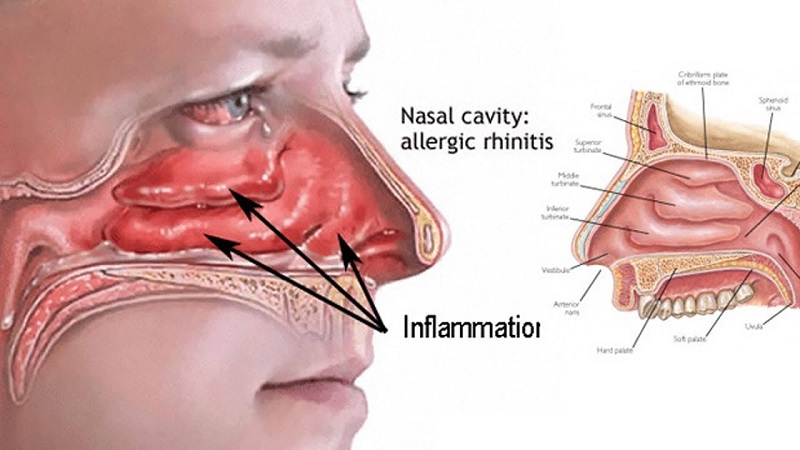That drippy, stuffy feeling in your nose and throat? That’s likely catarrh, a buildup of mucus that can be annoying and disruptive. But what exactly is it, and how can you manage it effectively? This guide delves into the world of catarrh, exploring its causes, symptoms, and various approaches to finding relief.
Catarrh, often referred to as postnasal drip, is a condition characterized by the excessive production of mucus in the nasal passages and throat. It can be triggered by various factors and may lead to discomfort and irritation in the affected individual.
Symptoms of Catarrh
- Persistent cough
- Sore throat
- Runny or stuffy nose
- Difficulty swallowing
- Feeling of mucus dripping down the throat (postnasal drip)
- Hoarseness or loss of voice
Diagnosis of Catarrh

Diagnosing catarrh typically involves a physical examination by a healthcare professional. In some cases, further tests such as allergy testing or imaging studies may be recommended to determine the underlying cause of the condition.
Prevention of Catarrh
Preventing catarrh involves minimizing exposure to known triggers and maintaining good overall health. Some preventive measures include:
- Practicing good hand hygiene to reduce the risk of respiratory infections
- Avoiding exposure to allergens or irritants
- Using a humidifier to keep indoor air moist and reduce nasal dryness
- Staying hydrated by drinking plenty of fluids
- Eating a balanced diet rich in fruits and vegetables to support immune function
When to See the Doctor
It is advisable to consult a doctor if catarrh symptoms persist for more than a few weeks, worsen over time, or are accompanied by severe pain, fever, or difficulty breathing. Additionally, seek medical attention if symptoms significantly impact daily activities or quality of life.
What is the major cause of catarrh?
While mucus is essential for keeping your airways moist and protected, its overproduction can lead to catarrh. Several factors can trigger this:
- Respiratory infections such as the common cold or flu
- Gastroesophageal reflux disease (GERD)
- Viruses and allergies: Colds, flu, and allergies irritate and inflame your airways, leading to increased mucus production.
- Dry air: Dry air can irritate and dry out your airways, stimulating excess mucus production to compensate.
- Sinusitis: Inflammation of the sinuses can cause drainage issues, leading to a feeling of congestion and catarrh.
- Environmental irritants: Dust, pollution, and smoke can irritate your airways, triggering mucus production.
- Certain medications: Some medications, like birth control pills, can contribute to increased mucus production.
Catarrh in Children
Children can also experience catarrh, especially during cold and flu season or when exposed to allergens. Parents should monitor their child’s symptoms closely and seek medical advice if symptoms are severe, persistent, or interfere with normal breathing or eating patterns.
Overall, catarrh is a common condition that can usually be managed effectively with proper treatment and preventive measures. Seeking timely medical advice can help alleviate symptoms and improve overall comfort and well-being.
What gets rid of catarrh?
The best approach to managing catarrh depends on its underlying cause. Here are some strategies to consider:
-
Home remedies:
- Humidifier: Adding moisture to the air can thin mucus and ease congestion.
- Warm saline nasal irrigation: Rinsing your nasal passages with a saline solution can clear mucus and soothe irritation.
- Steam inhalation: Breathing in steam can help loosen mucus and make it easier to clear.
- Warm compress: Applying a warm compress to your face can ease sinus pressure and discomfort.
-
Over-the-counter medications:
- Decongestants: Can help shrink swollen nasal passages and reduce congestion.
- Antihistamines: If allergies are the culprit, antihistamines can block the allergy response and reduce mucus production.
- Expectorants: These medications help thin mucus and make it easier to cough up.
Treatment of Catarrh
Treatment for catarrh aims to alleviate symptoms and address the underlying cause. Common treatment options include:
- Over-the-counter antihistamines or decongestants to reduce nasal congestion
- Nasal saline sprays or rinses to help clear nasal passages
- Steam inhalation to relieve congestion and soothe irritated nasal passages
- Avoiding environmental triggers such as smoke or strong odors
- Prescription medications for underlying conditions such as sinusitis or GERD
What is catarrh called in USA?
In the USA, catarrh is often referred to as “postnasal drip” when it affects the back of the nose and throat. It’s also sometimes called “rhinitis” or “sinusitis” depending on the underlying cause.
What is the best medicine for catarrh?
There’s no single “best” medicine for catarrh, as the most effective approach depends on the cause and severity of your symptoms. Consulting your doctor for diagnosis and personalized treatment recommendations is crucial. They can determine the underlying cause and suggest appropriate medications, home remedies, or even surgery in severe cases.
Remember: Catarrh is a common issue, but it doesn’t have to control your life. By understanding its causes and exploring various management strategies, you can find relief and breathe easier. Don’t hesitate to seek professional guidance if your symptoms persist or worsen, ensuring a clear and comfortable path to optimal respiratory health.





